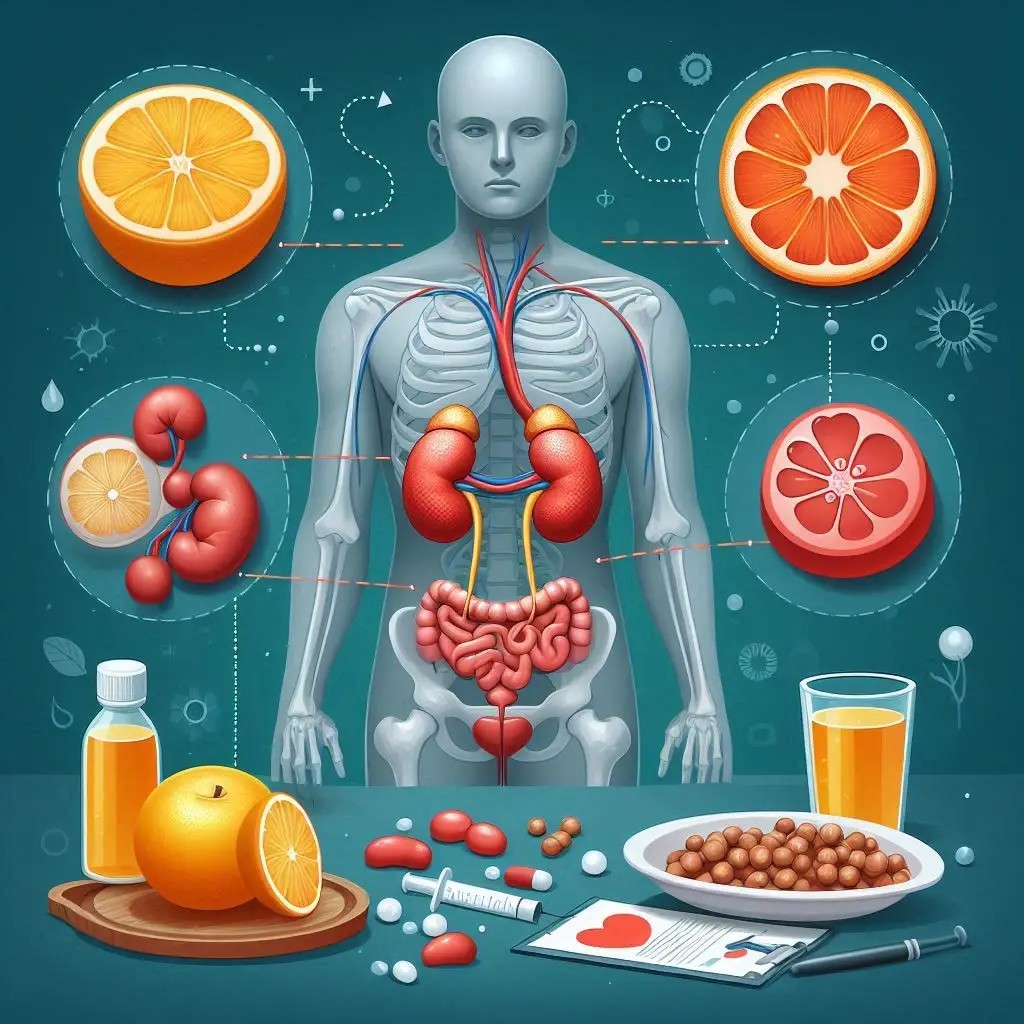Kidney Stones & Bloating
Understanding the surprising link between your kidneys and digestive comfort.

Why Does It Happen?
Yes, kidney stones can definitely cause bloating. While it might seem strange since kidneys are part of the urinary system, not the digestive system, the connection lies in their close proximity and shared nerve pathways.
When a kidney stone causes a blockage or significant inflammation, it can trigger a response in the nearby gastrointestinal (GI) tract. This can slow down digestion and lead to a buildup of gas, causing the uncomfortable bloating and pressure you might feel in your abdomen.
- Shared Nerves: Nerves connecting the kidneys and the GI tract can send distress signals back and forth.
- Inflammatory Response: Inflammation from the kidney can affect nearby organs, including the intestines.
- Pain Reflex: Severe pain from a kidney stone can cause the abdominal muscles to tense up, contributing to a feeling of fullness and bloating.
Tract
A simplified diagram showing the close proximity of the kidneys to the gastrointestinal tract, which can lead to bloating.
Interactive Symptom Explorer
Click on the highlighted areas to learn about common symptoms.
Abdominal Symptoms
Bloating and a feeling of fullness are common because the kidney inflammation can disrupt normal digestive processes.
- Bloating and Gas: A primary symptom linked to the slowdown of the GI tract.
- Nausea and Vomiting: Severe pain can trigger these responses.
- Stomach Ache: A general, dull ache can accompany the sharp kidney pain.
Commonality of Symptoms
When to Seek Medical Help
While many stones pass on their own, some symptoms require immediate attention.
Severe, Unbearable Pain
If you have pain so severe that you can't find a comfortable position, it's a sign to see a doctor immediately.
Pain with Fever & Chills
This combination could indicate a serious infection that requires urgent medical treatment to prevent complications.
Persistent Nausea & Vomiting
If you are unable to keep fluids down, you risk dehydration and need medical evaluation.
Disclaimer: This guide is for informational purposes only and does not constitute medical advice. Always consult with a healthcare professional for diagnosis and treatment.
Relieving Discomfort & Treatment Options
Treatment depends on the size and type of the stone.
At-Home Care for Small Stones
For small stones, your doctor will likely recommend conservative treatment to help you pass the stone naturally.
- ✔ Hydration: Drinking 2 to 3 quarts (1.8 to 3.6 liters) of water a day helps flush the urinary system.
- ✔ Pain Relievers: Over-the-counter pain relievers like ibuprofen or naproxen sodium can help manage discomfort.
- ✔ Medical Therapy: Your doctor may prescribe an alpha-blocker, which relaxes the muscles in your ureter, helping you pass the stone more quickly and with less pain.
Medical Procedures for Large Stones
Larger stones or those causing severe symptoms may require more invasive treatment.
- ▶ Shock Wave Lithotripsy (ESWL): Uses sound waves to create strong vibrations (shock waves) that break the stones into tiny pieces.
- ▶ Ureteroscopy: A small, lighted tube (ureteroscope) is passed through your urethra and bladder to your ureter to either remove the stone or break it up.
- ▶ PCNL: For very large stones, this surgical procedure involves removing the kidney stone using small telescopes and instruments inserted through a small incision in your back.
Frequently Asked Questions
Quick answers to common questions.
Yes, absolutely. The abdominal discomfort, gas, and pressure can easily be mistaken for indigestion or other GI problems. The key differentiator is usually the presence of other kidney stone symptoms, such as sharp flank pain or urinary changes.
The bloating and digestive discomfort will typically improve once the kidney stone has passed or has been treated. As the underlying cause of the inflammation is resolved, the GI tract can return to its normal function.
Yes. Staying well-hydrated is crucial for preventing stones and can also aid digestion. Certain foods high in oxalate (like spinach, nuts) can contribute to stone formation in susceptible individuals, while other foods can independently cause bloating. A balanced diet and plenty of water are beneficial for both conditions.